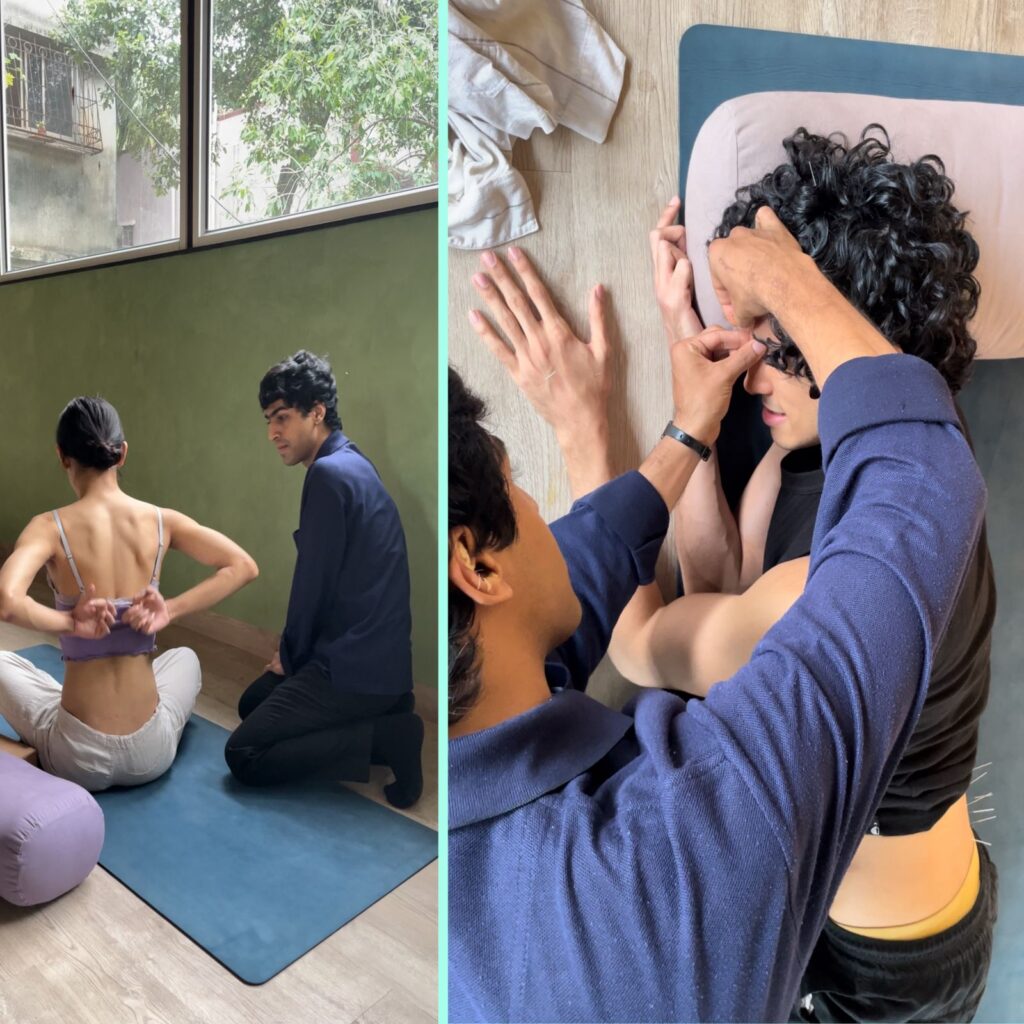EMOTIONAL RELEASE

For centuries, Psychosomatic healing and Acupuncture have been powerful tools for unlocking the body’s innate healing power, addressing both physical symptoms and the emotional roots of illness. This emotional release workshop explores how combining these two practices can help release deeply stored emotions, heal the organs associated with emotional imbalances, and build emotional resilience for the future.
The Mind-Body-Organ Connection In traditional Chinese medicine, emotions are believed to be closely tied to specific organs. For example, anger is linked to the liver, grief to the lungs, worry to the spleen, fear to the kidneys, and joy to the heart. When these emotions are suppressed or experienced intensely over time, they can create imbalances in their corresponding organs, leading to both emotional and physical disharmony.
Acupuncture works to restore balance in these organs by regulating the flow of qi (life force) along the meridians, while psychosomatic healing helps you recognize and release these emotional patterns. Together, they allow for a deeper level of healing, addressing not only the emotional symptoms but also the physical organs affected by them.
How Acupuncture Heals Organs and Emotions
Each emotion is connected to specific organs in the body, and acupuncture can help restore health to these organs, promoting emotional release and building your capacity to handle difficult emotions:
1. Liver & Anger The liver is responsible for the smooth flow of qi and emotions. When qi stagnates due to unresolved anger, it can lead to frustration, irritability, or even physical symptoms like headaches or digestive issues. Acupuncture helps release this stagnation, allowing for the healthy expression of anger and restoring balance to the liver.
2. Lungs & Grief Grief and sadness are often held in the lungs, leading to feelings of heaviness, difficulty breathing, or chest tightness. Acupuncture strengthens the lung meridian, helping to clear lingering grief and restore healthy respiratory and emotional function.
3. Kidneys & Fear Fear is rooted in the kidneys, and prolonged fear can drain the body’s energy reserves, leading to fatigue, anxiety, or a weakened immune system. By nourishing the kidneys through acupuncture, we can build resilience, courage, and a greater ability to face and manage fear.
4. Spleen & Worry Excessive worry and overthinking deplete the spleen, leading to digestive issues or a sense of being mentally stuck. Acupuncture supports the spleen by boosting energy and helping you break free from repetitive thought patterns.
5. Heart & Joy While joy is generally a positive emotion, excess excitement or emotional extremes can disrupt the heart’s energy, leading to anxiety or restlessness. Acupuncture calms the heart and restores emotional equilibrium, helping to regulate emotions and enhance emotional clarity.
Building Emotional Resilience for the Future
By healing the organs responsible for processing emotions, acupuncture doesn’t just offer temporary relief—it builds emotional capacity. This means that as your organs return to balance, your ability to handle and process challenging emotions grows stronger. Here’s how the combination of Acupuncture and Psychosomatic healing can prepare you to better manage emotions in the future:
1. Emotional Strength Regular acupuncture treatments strengthen the organs and help clear emotional blockages. This allows you to feel and process emotions more fully without being overwhelmed by them. Over time, you develop emotional resilience, becoming better equipped to handle stress, anxiety, or emotional triggers.
2. Improved Self-Regulation As your organs heal, your nervous system becomes more balanced. Acupuncture’s ability to calm the nervous system helps you maintain emotional control, even during challenging situations. Psychosomatic healing complements this by giving you tools to understand and process emotions when they arise.
3. Prevention of Future Imbalances The regular practice of acupuncture can help prevent future emotional imbalances. By consistently supporting the flow of energy in the body and keeping the organs healthy, you reduce the risk of chronic emotional or physical distress. Psychosomatic healing brings awareness to the emotional patterns that contribute to imbalance, helping you break the cycle before it manifests physically.
How can this workshop help with specific emotional and physical health issues?
1. Chronic Pain and Emotional Trauma Chronic physical pain often has deep emotional roots. Acupuncture helps release the qi trapped in areas of pain, while psychosomatic healing helps uncover and release the emotional triggers behind this pain.
2. Anxiety, Fear, and Depression Emotions like fear and anxiety often create energetic blockages that weaken the kidneys or disrupt the heart’s rhythm. Acupuncture rebalances these organs, while psychosomatic healing helps release the emotional patterns contributing to anxiety and depression.
3. Grief and Loss Grief can linger in the lungs, creating a heavy emotional and physical burden. Acupuncture clears this blockage, allowing the lungs to heal and facilitating emotional release, while psychosomatic healing provides a safe space to process and resolve the grief.
How many sessions are needed for emotional release and building resilience?
While individual experiences vary, here’s what to expect on your healing journey:
1.Initial Relief After one or two sessions, participants often feel an immediate sense of emotional lightness or relief. Acupuncture’s ability to unblock qi and heal the organs brings both physical and emotional release.
2.Deeper Healing Over Time Deeper emotional patterns and trauma may take several sessions to release fully. Each session builds on the last, allowing for gradual healing of both the emotions and the organs.
3.Building Long-Term Emotional Capacity Consistency is key. Regular acupuncture, combined with psychosomatic healing, builds the emotional capacity to handle stress and emotional challenges in the future, promoting lasting emotional balance and resilience.
Safety & Risk / Contraindications
Acupuncture Safety
- Safe and Low Risk Acupuncture is generally safe when performed by a licensed professional.
- Mild Side Effects Some participants may experience minor bruising, soreness, or emotional release after a session, which is normal and part of the healing process.
- Sterile Needles All needles used are pre-sterilized and disposable, ensuring safety and hygiene.
Psychosomatic Healing Safety
- Emotional Processing The workshop provides a supportive environment for emotional release, which may bring up old emotions, but this is a healthy and necessary part of the healing process.
(Pregnant individuals or those with specific medical conditions should consult with their healthcare provider before participating.)


